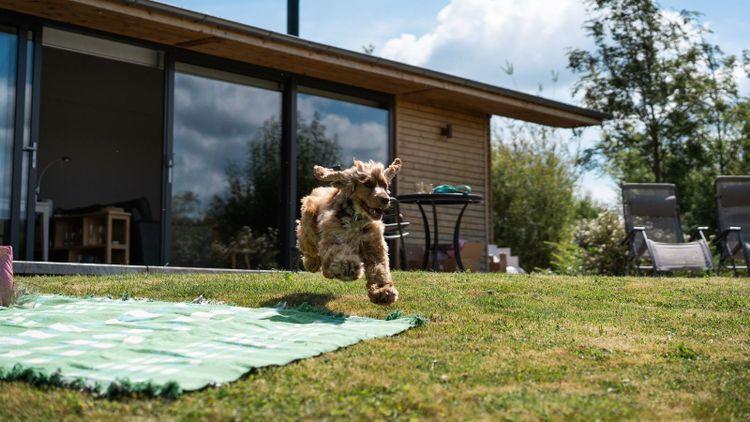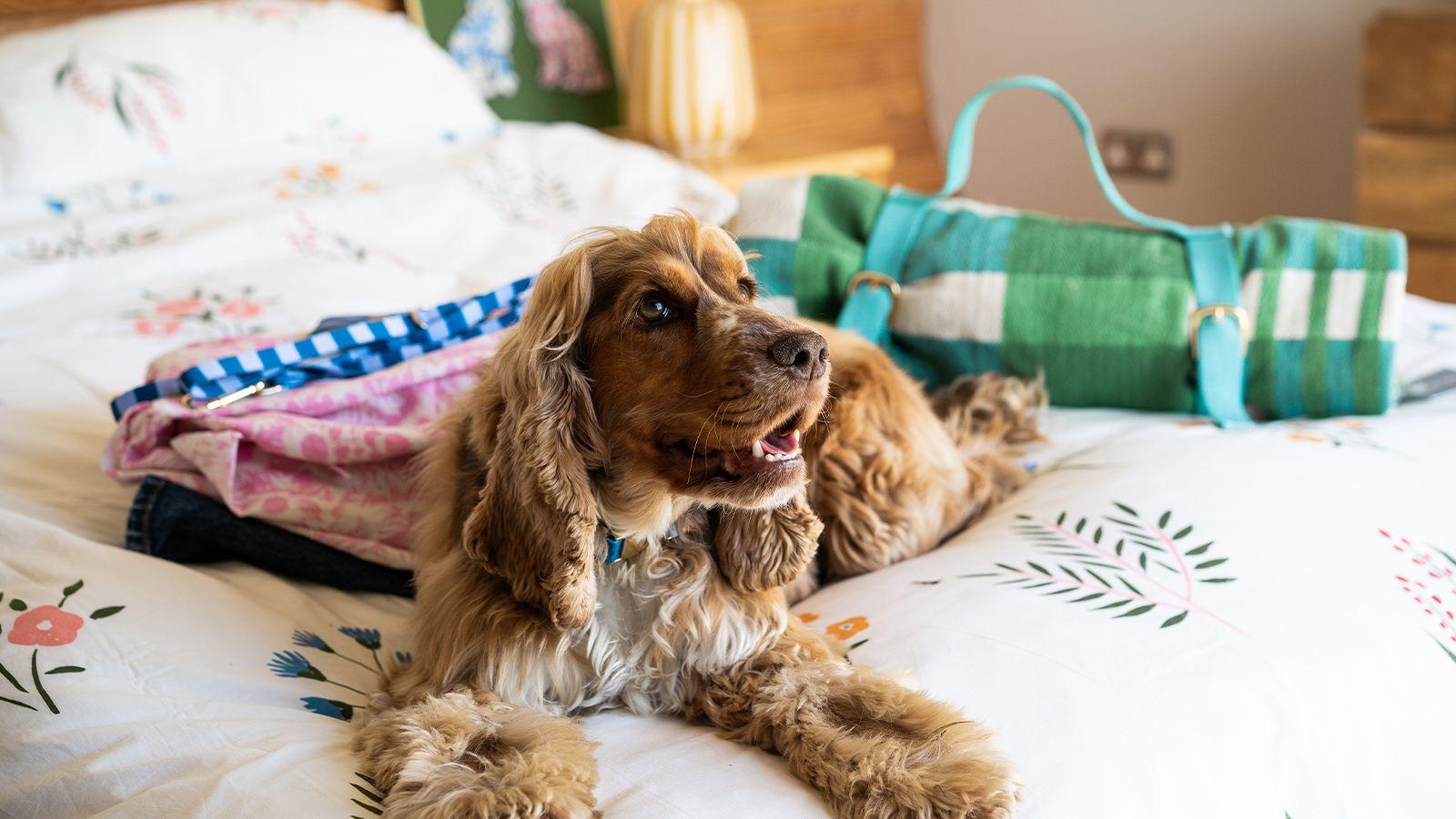
Dog-friendly holidays: etiquette for pets on the road
Follow the rules
Whether you’re staying in a hotel, a self-catering cottage or a glamping cabin, it’s likely your accommodation has some rules you’ll need to follow. This could be anything from picking up after the dog in the garden, to ensuring they don’t jump on the beds or sofas. Of course, it can be more stressful for you if you’re constantly having to correct your dog’s behaviour, so booking somewhere where they can join you on the furniture will make for a far more relaxing holiday – try our places at Cynefin Retreats in Herefordshire or The Cook’s Cottage in Kent.
On each place’s page there’s a ‘You should know’ section where we detail if your dog can join you on the sofa and other things to know about staying there with your hound.
Always ask permission
Every single place we take on board has been personally inspected, and we bring a dog along to every one – to make sure it’s good enough to give our hounds… paws…. for thought. We meet the owners, dip a toe in the hot tubs and baths, and ask questions like ‘are dogs allowed on the sofa?’. However, whilst we make sure you know everything about the place you’re staying in, you may need to be mindful when you’re out and about. Don’t forget to ask if you’re able to bring your dog inside a shop, pub or café before you charge right in – it’s always polite to stick your head around the door and ask in advance.

Keep a distance
Dogs aren’t universally loved by all humans (no, we’re not sure why either) or even all dogs, so respecting others’ space is essential when you’re exploring the world with your pet. When you’re in a café or pub, don’t let your dog approach others while they’re eating, and be mindful that children especially might be nervous around dogs.
The same goes for other holidaying dogs, too: there has been a rise in behavioural issues in pets over the last few years, largely down to the pandemic when puppies couldn’t be socialised appropriately, so be aware that not all dogs will want to greet yours. It’s always best to ask an owner in advance of letting your dog interact, and keep an eye out for Yellow Dogs UK signage on others’ leads or harnesses. It might say something like “I need space” or “do not approach”, so follow their lead and keep a distance when you spot the yellow labels.
Respect the environment
Exploring the natural world with dogs is deeply rewarding for both you and your pet, but to keep enjoying it for generations to come, we need to respect and protect it. One of the core ways dog owners can protect natural habitats is to clean up after their animal. While the “stick and flick” method is often encouraged by certain land owners or organisations, it can be more damaging to the environment, releasing chemicals that can be harmful to plants and wildlife. Picking up the poo, no matter how far away the nearest bin might be, is always the most responsible option. Invest in a Dicky Bag for carrying it long distances when you’re out in rural, remote areas.
It’s also important to be conscious of wildlife when you’re exploring with the dog, and certain times of year bring different challenges. March through July is ground nesting bird season, so be wary in grassy areas where lapwings, skylarks and other species might be making their homes for the spring – once disturbed, these birds might not return to their nests, leaving young chicks to starve, so dogs are always best kept on leads in these areas.
Winter brings thousands of seals to our shores for breeding, which can be a spectacular sight from both land and sea. But seals will become incredibly defensive of their young so it’s essential to keep dogs well away from colonies; there have been incidents in the past which have led to the death of a seal or its pup, so be vigilant on beaches.
Finally, it’s absolutely essential to adhere to the on-lead rules around farms where there’s livestock. While your dog might just want to be playful with the sheep or cattle in that farmer’s field, the livestock won’t see it that way and even a short chase can result in the death of an animal. The only time it’s appropriate to let your dog off the lead around farm animals is if you are in a field of cows who are getting too close – it’s likely the cows perceive the dog as a threat, so it’s safer for you to let your dog off to draw the cows away from you so you can pass through safely.